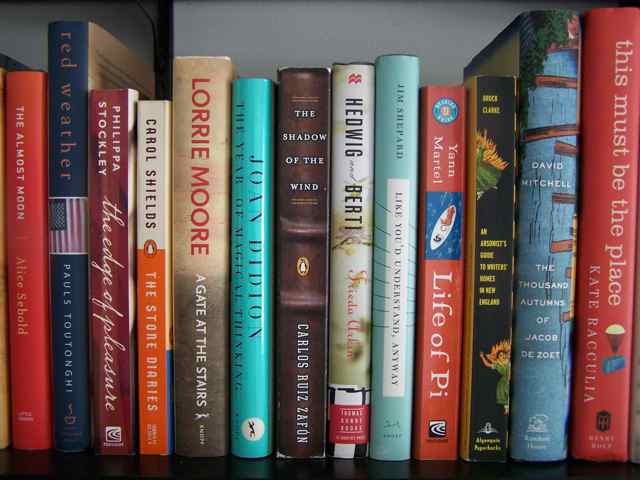
The Happiness Project by Gretchen Rubin is a stunt memoir about the author’s year of experimentation to become a happier person. Like many memoirs, especially the stunt-type, The Happiness Project seems to either inspire or annoy – depending, maybe, on how much empathy a reader feels for Gretchen as she appears in her own portrayal. To me, she seemed she was trying to be as honest as possible in reporting on her faults, failures, and emotions, but I guess to some readers her assessments of herself come across as humble-bragging.
The book’s chapters are divided by the month and each focuses on a different theme, but is layered onto the others. The final three chapters are the shortest, as Gretchen continues to try to follow her resolutions from the earlier nine months, while adding on Mindfulness (October) and Attitude (November), before getting to Happiness (December) where she tries to reach “Boot Camp Perfect” by following all of her resolutions all of the time.
Here’s an excerpt from the Attitude chapter that gives a sense of what Gretchen’s writing is like, and how she blends reporting on her research with her personal goals and observations.
GIVE POSITIVE REVIEWS
I wanted to laugh more, I wanted to show more loving-kindness, and I also wanted to be more enthusiastic. I knew that it wasn’t nice to criticize – but it was fun. Why was it so deliciously satisfying to criticize? Being critical made me feel more sophisticated and intelligent – and in fact, studies show that people who are critical are often perceived to be more discerning. In one study, for example, people judged the writers of negative book reviews as more expert and competent than the writers of positive reviews, even when the content of both reviews was deemed to be of high quality. Another study showed that people tend to think that someone who criticizes them is smarter than they are. Also, when a person disrupts a group’s unanimity, he or she lessens its social power. I’ve seen people exploit this phenomenon; when a group is cheerfully unanimous on a topic like “The teacher is doing a great job” or “This restaurant is terrific,” such a person takes the opportunity to deflate the group’s mood. Being critical has its advantages, and what’s more, it’s much easier to be hard to please. Although enthusiasm seems easy and undiscriminating, in fact, it’s much harder to embrace something than to disdain it. It’s riskier.
When I examined my reactions to other people, I realized that I do often view people who make critical remarks as more perceptive and more discriminating. At the same time, though, it’s hard to find pleasure in the company of someone who finds nothing pleasing. I prefer the company of the more enthusiastic types, who seem less judgmental, more vital, more fun.
Probably because I have some minor public speaking to do tonight, I was feeling a little glum this morning. When I told my husband I needed to write my final discussion post about The Happiness Project, he saw my face and said, “It looks like it didn’t work.” Of course, that’s the bothersome thing about all self-help books! Reading the book isn’t enough; the book should give the reader the impetus to change whatever the reader is hoping to change by reading the book. In this case, the book is meant to inspire a reader to do his or her own happiness project, because what makes one person happy may not work for someone else, and I was inspired again (This was my second reading of The Happiness Project.) to at least think about starting my own, less ambitious project one of these days.
If you liked The Happiness Project by Gretchen Rubin, you may want to read her follow-up book, Happier at Home, in which she focuses on appreciating and improving her home and family life. She also maintains The Happiness Project blog and has a wide following.
The Happiness Project
Rubin, Gretchen
HarperCollins, 2011
978-0-06-158326-1310 pp.
$14.99, soft.
Disclosure: I bought my own copy of The Happiness Project by Gretchen Rubin to read with librarian-blogger Joy Weese Moll and others at Joy’s Book Blog. Visit Joy’s Book Blog to join the group read or find more discussion of The Happiness Project.
a

